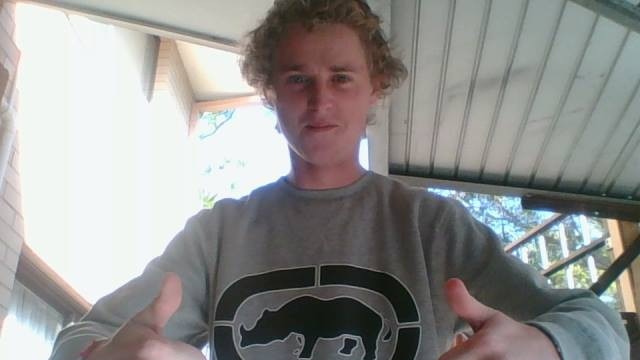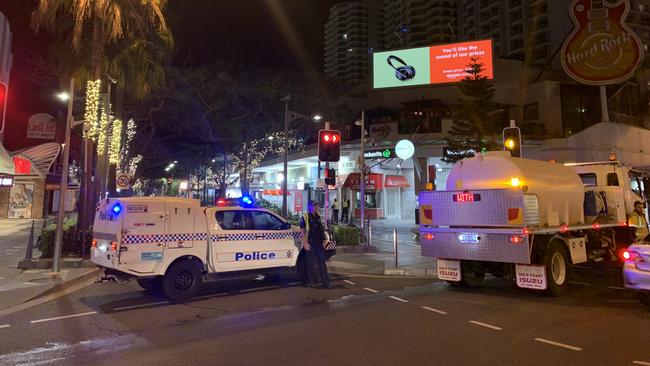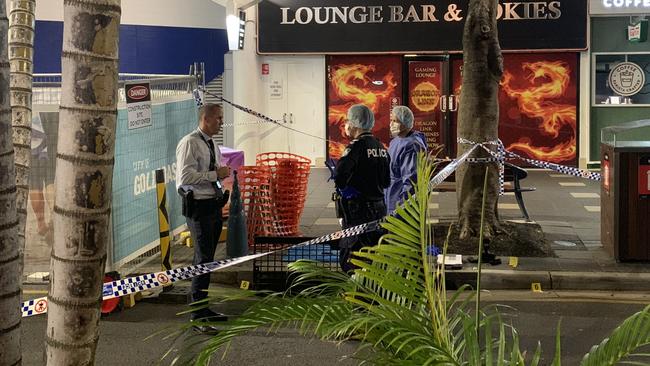Jye Sebastian Webb-Italia loses appeal against conviction for murder of Raymond Harris, 27
Lawyers for a young man guilty of murdering Raymond Harris at Surfers Paradise in September 2020 have failed to get their client’s conviction overturned. Here’s why it was dismissed.

News
Don't miss out on the headlines from News. Followed categories will be added to My News.
A knife-wielding man who murdered a young father at Surfers Paradise by stabbing him has lost an appeal seeking his conviction be overturned on the basis the trial judge erred in directions to the jury.
Jye Sebastian Webb-Italia, 23, was 18 when, on September 23, 2020, he and two co-defendants confronted Raymond Harris, 27, near the corner of Cavill and Orchid avenues at Surfers Paradise, before Webb-Italia sunk the blade into Mr Harris’ stomach.
Webb-Italia was found guilty of murder after a trial last year in the Brisbane Supreme Court – his plea of guilty to manslaughter was not accepted by the Crown – while his brother Kyle Jack Webb, now 29, was found guilty of manslaughter.
The third co-defendant, Jarod James Miller, now 25, was found not guilty of murder or manslaughter, and discharged.

Webb-Italia was sentenced to life imprisonment, with a 20-year non-parole period, while Webb received nine years for manslaughter.
Webb-Italia appealed his conviction on the basis “there was a miscarriage of justice arising from the learned trial judge’s directions concerning the absence of certain evidence,” according to an April 15 decision of the Queensland Court of Appeal.
The crux of the appeal related to the trial judge’s summing up of Webb-Italia’s defence counsel Tony Kimmins’ closing statement, in which Mr Kimmins questioned why police did not drug test his client to assess Webb-Italia’s claims of ‘blacking out’ during the fatal confrontation.
Webb-Italia had told police he consumed cannabis on the day of the murder (he may also have taken methamphetamine, although this was not settled at trial), and was also taking (and abusing) prescription medication for the treatment of bipolar disorder and epilepsy.

Mr Kimmins called the lack of evidence that would have resulted from a drug test, which would assist in determining whether his client was able to form the requisite intent to commit murder, a “deafening silence”.
In response, Crown prosecutor Elizabeth Kelso asked the trial judge to direct the jury they should not infer any motives for the lack of drug testing – it was simply Webb-Italia was not tested.
The trial judge agreed to the request and phrased it so, according to the Court of Appeal justices: “The evidence is the evidence. We are not going to speculate on why there was not some particular part of the evidence.”

Webb-Italia’s appeal counsel Martin Longhurst argued this direction was incomplete, and should have included words to the effect that his client’s evidence about his level of intoxication was more easy to accept because it was not contradicted by evidence police may reasonably have been expected to procure – such as a drug test.
Such an expanded direction, Mr Longhurst argued, would accord with a precedent known as the Jones v Dunkel Rule, which holds that where the prosecution fails to call a witness who would reasonably be expected to be called, an inference can sometimes – not always – be drawn that the witness would not have helped their case.
However, the trio of justices sitting as the Court of Appeal said this argument was incorrect at law because in this case there was no particular witness identified, simply a submission by Mr Kimmins that police could have undertaken further investigation via drug testing Webb-Italia.
As such, the appeal was dismissed.
More Coverage
Originally published as Jye Sebastian Webb-Italia loses appeal against conviction for murder of Raymond Harris, 27





